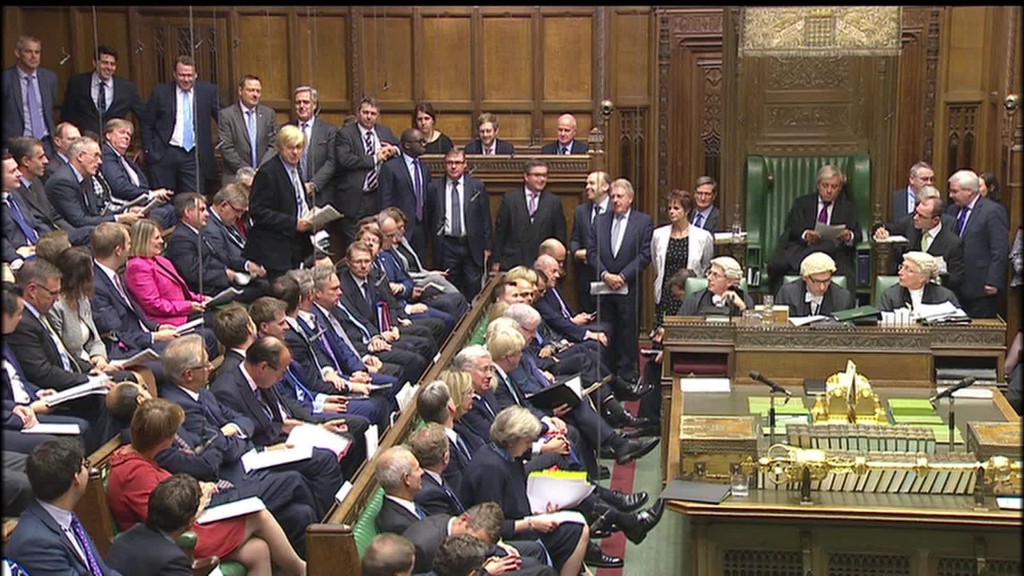
Tony Blair says that Britain's departure from the European Union is not etched in stone.
In an interview with the New Statesman, the former British prime minister said the process could be halted.
"It can be stopped if the British people decide that, having seen what it means, the pain-gain cost-benefit analysis doesn't stack up," Blair told the magazine.
The former Labour Party boss believes that parliament -- or the British people -- will in the end be allowed to pass judgment on the specific exit deal negotiated with the EU.
That puts him at odds with Prime Minister Theresa May, who has rejected calls for a second referendum, while insisting that "Brexit means Brexit." She's also appealing a court ruling that parliament should have a vote before the formal exit negotiations begin.
May has committed to triggering the legal exit process by the end of March. That will set off two years of frantic negotiations over the terms of Britain's exit from the trading bloc.
Blair makes the case for a public evaluation of whatever deal is negotiated. Will Britain retain access to the EU's giant free trade area? Or will it be forced to go it alone and negotiate new trade deals with Europe and the rest of the world?
"Why wouldn't you keep your options open? Why wouldn't you say, 'We took this decision, we took it before we saw what its consequences are; now we see its consequences, we're not so sure?' " he asked.
Related: The cost and complexity of leaving the EU
The public got its first official look at the cost of Brexit on Wednesday. The U.K. will be forced to borrow an extra £58.7 billion ($72.6 billion) over the next five years because of an economic slowdown triggered by the exit, according to estimates published by the Office of Budget Responsibility.
The independent government agency said growth will slump to just 1.4% next year -- the weakest rate since 2009.
Blair, who has expressed a desire to reengage in policy debates in the U.K., cited the example of a deal offered to Nissan (NSANY) following the referendum. In exchange for continued investment in the U.K., May is believed to have offered the Japanese automaker certain commitments.
But the specifics of the deal remain a closely held government secret.
"I don't know what the terms of that deal are, but we should know," Blair said. "Because that will tell us a lot about what [the government is] prepared to concede in order to keep access to the [EU] single market."
Related: U.K. economy to grow at slowest pace since 2009
Blair won three consecutive general elections, the last in 2005. He was the Labour Party's longest serving prime minister but faced fierce criticism over his decision to join the U.S.-led invasion of Iraq in March 2003.
Now he is intent on returning to policy debates by leading a resurgence of the center-left.
"You've got to learn the right lessons of Brexit, Trump and these popular movements across the Western world," he said. "Otherwise you're going to end up in a situation where you seriously think that the populism of the left is going to defeat the populism of the right. It absolutely won't."
